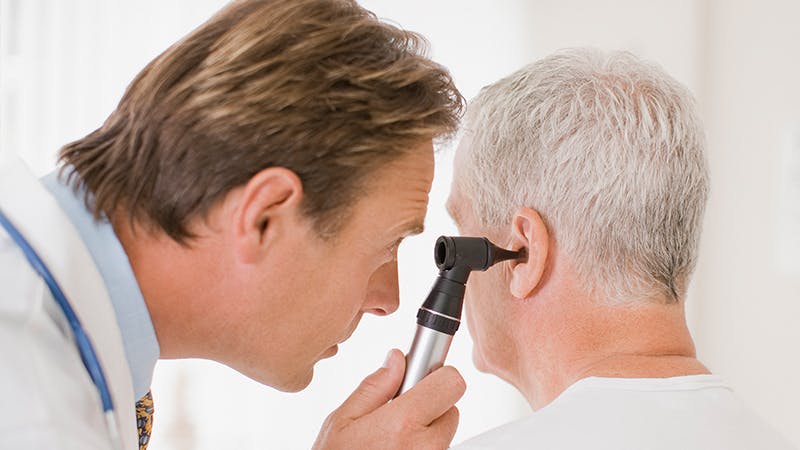
Fluid in the ear, also known as otitis media with effusion (OME) or serous otitis media (SOM), is an accumulation of liquid behind the eardrum that occurs if the ear cannot properly drain fluid. This can be caused by several factors, such as allergies or infections.
What causes fluid in the ears?
Your auditory tube is the tube that protects and drains your middle ear. If you are experiencing fluid accumulation in your ears, this is a sign that your eustachian tube is clogged or otherwise prevented from functioning optimally. Due to the anatomy of the tubes in children, they are far more likely to experience fluid in their ears than adults. About 90 percent of children experience fluid in their ears by the age of five or six. Some of the most common causes for fluid accumulation in the ears include:
- Ear infections
- Common cold
- Allergies
- Nasal congestion
- Chemical irritants such as cigarette smoke
- Nasal polyps or enlarged tonsils or adenoids
How will I know if I have fluid in my ears?
Most people experience some discomfort in connection with fluid in the ears. The symptoms can be mild or severe and painful, and may include:
- Hearing loss or feeling like sounds are muffled
- Feeling like your ears are full or plugged
- Ear pain
- Feeling like you need to “pop” your ears but being unable to
Diagnosing fluid in the ears in children can be more challenging. Small children may not be able to express their symptoms, and unless they experience pain, it may be more difficult to detect. This means that it often goes undiagnosed. If you suspect that your child may have fluid in their ears, schedule an appointment with an ENT (ear, nose, and throat doctor). ENTs are highly trained medical specialists and will be familiar with more subtle signs of fluid in the ears.
Will I need treatment?
In most cases, fluid in the ears will resolve on its own within a few weeks, requiring no medical treatment. If it persists for more than six weeks, it is best to contact an ENT. You are welcome to contact South Florida ENT Associates for an appointment. Your ENT will perform additional tests to rule out any underlying condition and to determine the best treatment for the persistent fluid in your ears.
If there is an infection, you may need antibiotics. In stubborn cases, it may be necessary to place tubes in the ears, but this is relatively rare. In the majority of cases, it is best to wait for the fluid to clear up on its own.
How can I prevent fluid accumulation in my ears or the ears of my children?
Avoiding cigarette smoke or any known allergens may help prevent future fluid accumulation and ear infections, as will washing your hands and your child’s toys frequently. If your child is over 12 months old, avoiding the use of a pacifier will decrease the risk of getting ear infections.

